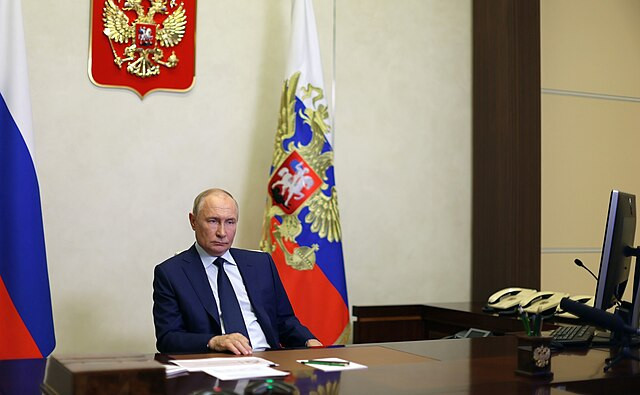Ukraine's daring military offensive into Russia's Kursk region has taken the world by surprise, signaling a dramatic escalation in the ongoing conflict and exposing significant vulnerabilities within Russia's defenses. The bold move, which began on August 6, has seen Ukrainian forces seize control of numerous villages, capture hundreds of Russian soldiers, and force the evacuation of tens of thousands of civilians. The operation is seen as a strategic effort by Kyiv to draw Moscow into what Ukrainian officials are calling "fair" negotiations to end the war.
Mykhailo Podolyak, a senior adviser to Ukrainian President Volodymyr Zelensky, made clear the operation's objectives in a statement on the Telegram messaging platform. "We need to inflict significant tactical defeats on Russia," Podolyak wrote, adding that the offensive is intended to compel Moscow to enter into meaningful negotiations. He specifically highlighted the Kursk region as a critical area where military pressure could force Russia to consider a diplomatic resolution.
The Ukrainian advance has not only caught the Russian military off guard but has also challenged the Kremlin's narrative of invincibility. Despite Russia's numerical superiority and its focus on holding ground in eastern Ukraine, the swift Ukrainian incursion has revealed cracks in Moscow's defensive strategy. The operation's success so far has raised questions about Russia's preparedness and its ability to respond to dynamic threats on multiple fronts.
Russian forces have struggled to mount an effective counteroffensive. Initial responses relied heavily on airstrikes and helicopter gunships, but these efforts have been hampered by Ukrainian air defenses, which reportedly downed at least one Russian helicopter. Reinforcements have been slow to arrive, and the disjointed nature of the Russian response has allowed Ukrainian forces to continue their advance, exploiting weaknesses in Russia's defenses.
The surprise element of the Ukrainian operation has been a key factor in its success. Unlike previous military actions where Kyiv openly declared its intentions, the incursion into Kursk was shrouded in secrecy, with Ukrainian troops reportedly informed of their mission only a day before it began. This strategy stands in stark contrast to the heavily publicized counteroffensive in Kharkiv last year, which, despite initial gains, ultimately faltered in the face of Russian resistance.
As the situation unfolds, the international community is watching closely. Both the United States and the United Kingdom have reiterated Ukraine's right to self-defense under international law, including the use of Western-supplied equipment in operations within Russian territory. However, there are concerns about the potential escalation of the conflict, particularly if Ukrainian forces were to target non-military sites or push deeper into Russian territory.
In Moscow, the Kremlin has reacted with alarm. Nikolai Patrushev, a senior Russian security official, accused NATO and Western special services of orchestrating the Ukrainian offensive, claiming that Kyiv would not have ventured into Russian territory without their support. Such assertions, while unsubstantiated, reflect the growing anxiety within the Russian leadership about the implications of the incursion.
The operation has also sparked fears of a broader conflict. A Russian lawmaker warned that the presence of Western military equipment on Russian soil could bring the world closer to a third world war, a sentiment echoed by other officials in Moscow. Despite these dire warnings, Ukrainian officials have indicated that their primary goal remains the creation of a buffer zone to protect Ukrainian territory from Russian artillery and missile attacks.
The Ukrainian offensive has undoubtedly altered the dynamics of the conflict, but questions remain about Kyiv's long-term strategy. Military analysts are divided on whether Ukraine will attempt to hold its gains in the Kursk region or retreat to more defensible positions closer to the border. The risks of overextending supply lines and facing a potential Russian counterattack are significant, and any miscalculation could result in heavy losses for Ukrainian forces.
Nevertheless, the incursion into Kursk has already achieved several key objectives for Kyiv. It has disrupted Russian military operations, boosted Ukrainian morale, and demonstrated Ukraine's ability to take the initiative on the battlefield. The operation has also challenged the prevailing narrative of the conflict, forcing both Moscow and the international community to reassess their strategies.




